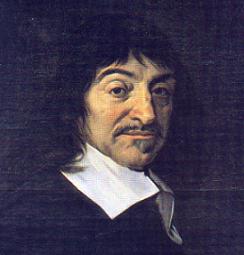











 Human Nature - Descartes
Human Nature - Descartes


“I think, therefore I am.”
The above statement was established through his reasoning that he must exist to be deceived by a higher being. Descartes also concluded that, since we as human beings are imperfect, there must be a perfect being existing that does not require anything but itself to exist. He also reasons that there is a cause and effect for everything; thus God exists and is the ultimate cause. This belief is innate; once again, we as human beings are imperfect, and of course, Descartes argues that the idea of perfection cannot derive from humans.
Descartes used the term ‘man’, believing that man has a soul as his thinking substance and a body as the extended substance, where the soul is like the pilot for the body. The soul, being the spiritual substance, thinks and is abstract, with no measurements or aspects of quantity attached to it. The corporeal substance is then the body, the extension that is material and sensible. Descartes believes that our senses cannot be trusted, on the basis of existing illusins, dreams, and hallucinations that occur from day to day. Knowledge is thus only attainable through reason and reason alone.
As human beings, our minds are affected by our feelings and our emotions are then expressed by our bodies, but it has the ability to detach and bcome independent from the body. This means that we have the capacity to rise above our bodily needs. The human mind cannot fail to think truly under its natural state and without the influence of outside sensory corruptions.